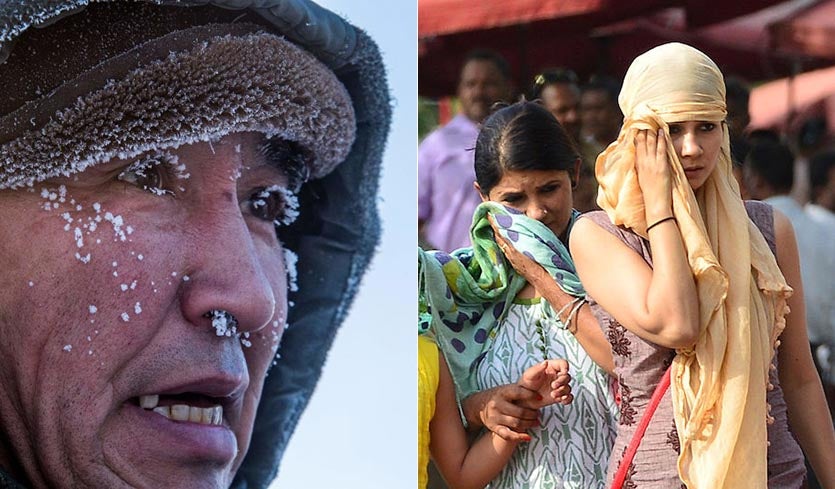"Across all countries, colder weather was linked to more excess deaths than warmer weather – approximately 20 times as many (7.29% deaths in colder weather compared with 0.42% in warmer weather).
For all countries, the optimum temperature – when there were fewest deaths linked to weather – was warmer than the average temperature for that location.
In the UK, for example, the average temperature recorded was 10.4C, while optimum temperature ranged from 15.9C in the north east to 19.5C in London. The optimum temperature for the UK was in the 90th centile, meaning that 9 out of 10 days in the UK are likely to be colder than the optimum.
The proportion of all deaths linked to extremely hot or cold days was much lower than that linked to less extreme hot or cold. The researchers say extreme heat or cold was responsible for 0.86% of deaths according to their statistical modelling (95%
confidence interval 0.84 to 0.87).
However, the
relative risk of dying at extremes of temperatures was increased, with a sharp increase in deaths at the hottest temperatures for most countries."
Mildly cold weather 'more deadly' than heatwaves or very cold snaps | NICS Well
Here's a report from the EPA that attempts to make heat deaths more alarming. They still have to admit that more people die from cold, even with their skewed reasoning.
- Between 1979 and 2016, the death rate as a direct result of exposure to cold (underlying cause of death) generally ranged from 1 to 2.5 deaths per million people, with year-to-year fluctuations (see Figure 1). Overall, a total of more than 19,000 Americans have died from cold-related causes since 1979, according to death certificates.
Between 1979 and 2018, the death rate as a direct result of exposure to heat (underlying cause of death) generally hovered between 0.5 and 2 deaths per million people, with spikes in certain years (see Figure 1). Overall, a total of more than 11,000 Americans have died from heat-related causes since 1979, according to death certificates.
This indicator presents data on deaths classified as “heat-related” in the United States.

www.epa.gov
But here is a scholarly study that easily refutes it.
Cold-weather accounts for almost all temperature-related deaths
"With the number of extreme weather days rising around the globe in recent years due to global warming, it is no surprise that there has been an upward trend in hospital visits and admissions for injuries caused by high heat over the last several years. But cold temperatures are responsible for almost all temperature-related deaths, according to a new study published in the journal
Environmental Research."
With the number of extreme weather days rising around the globe in recent years due to global warming, it is no surprise that there has been an upward trend in hospital visits and admissions for injuries caused by high heat over the last several years. But cold temperatures are responsible for...
www.sciencedaily.com




